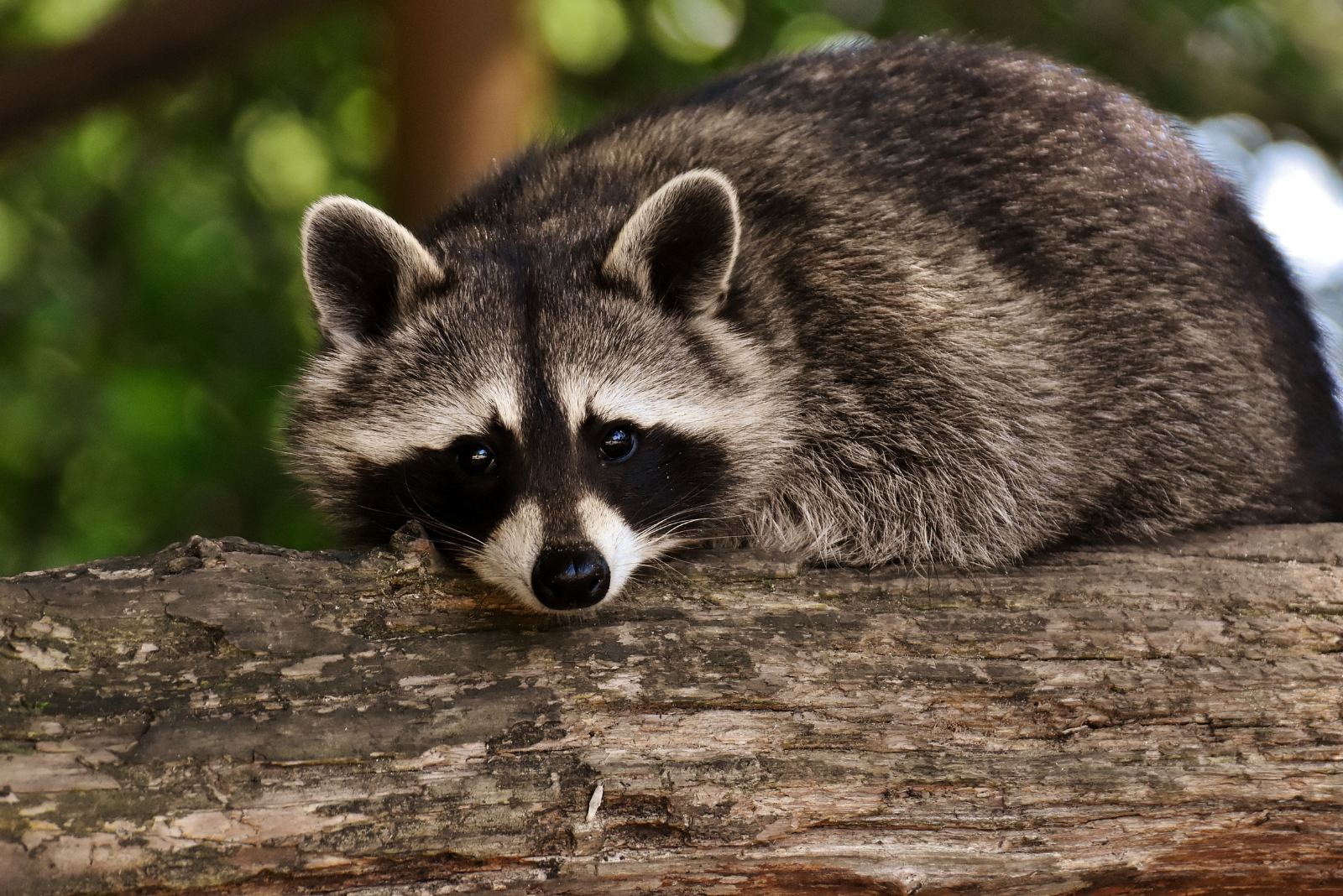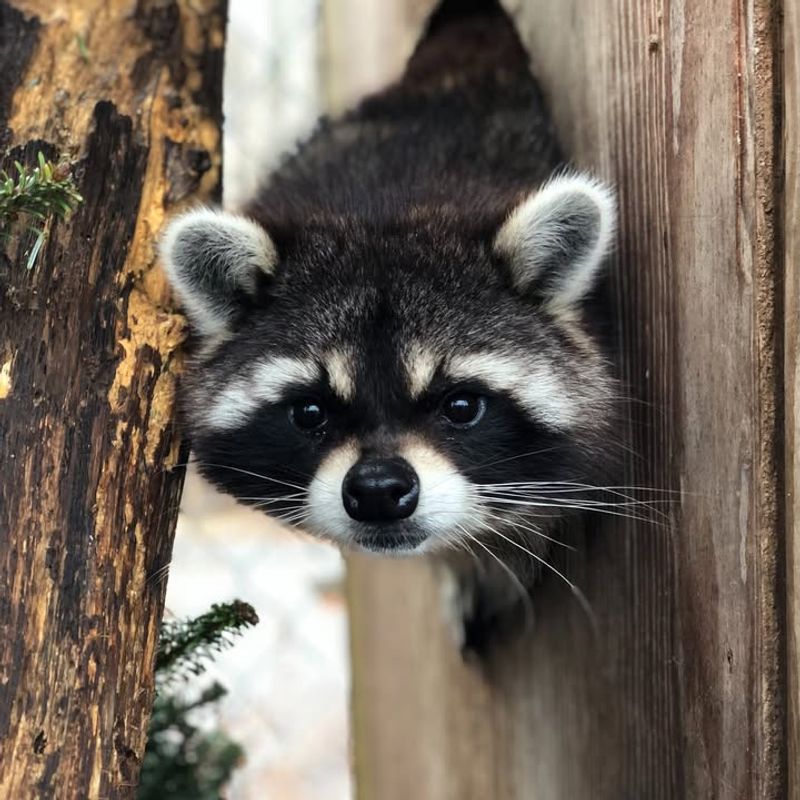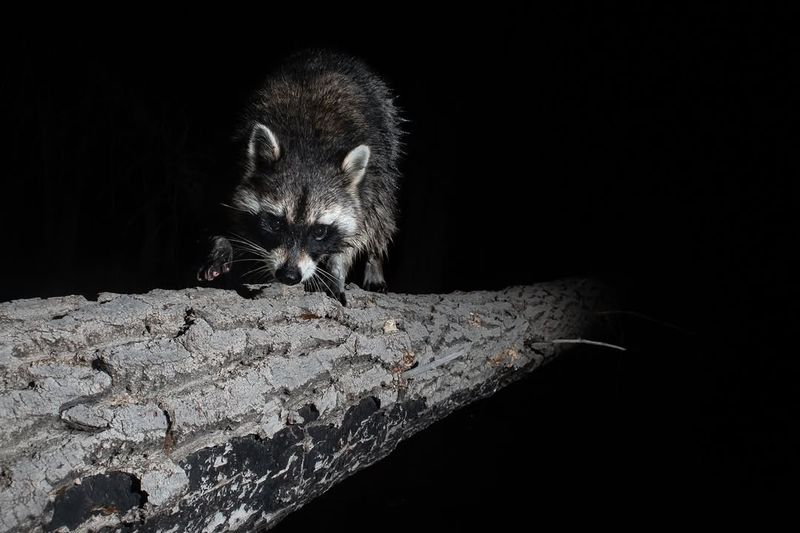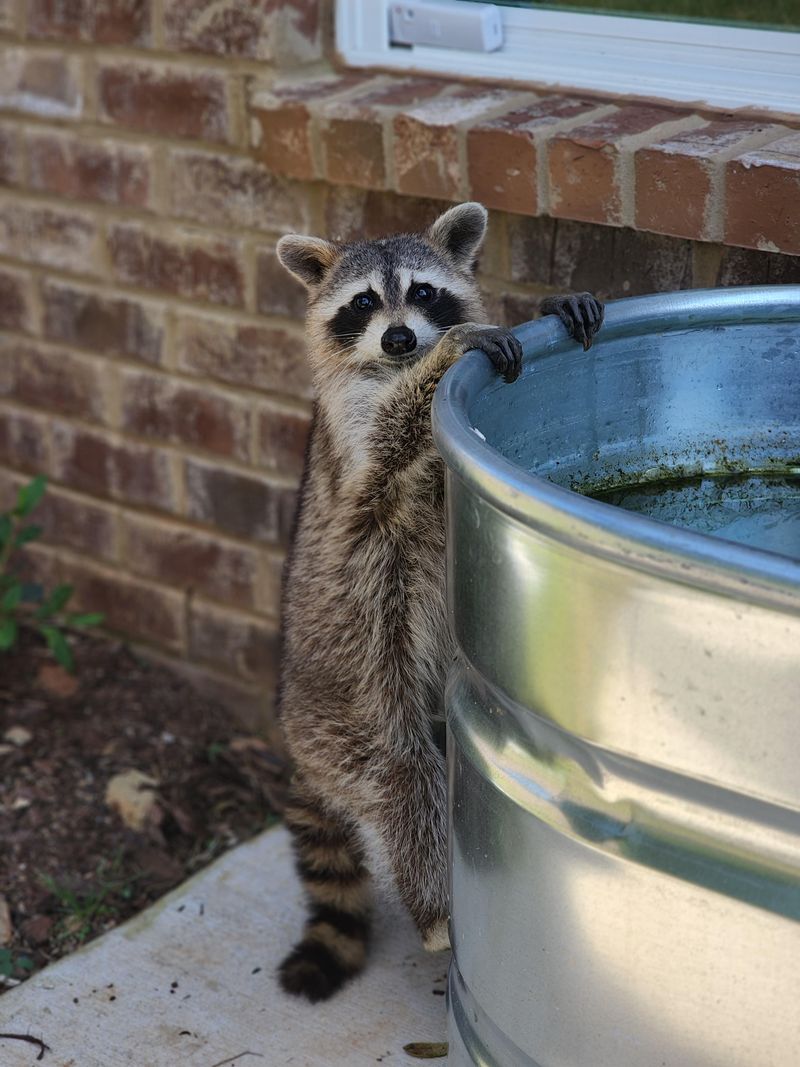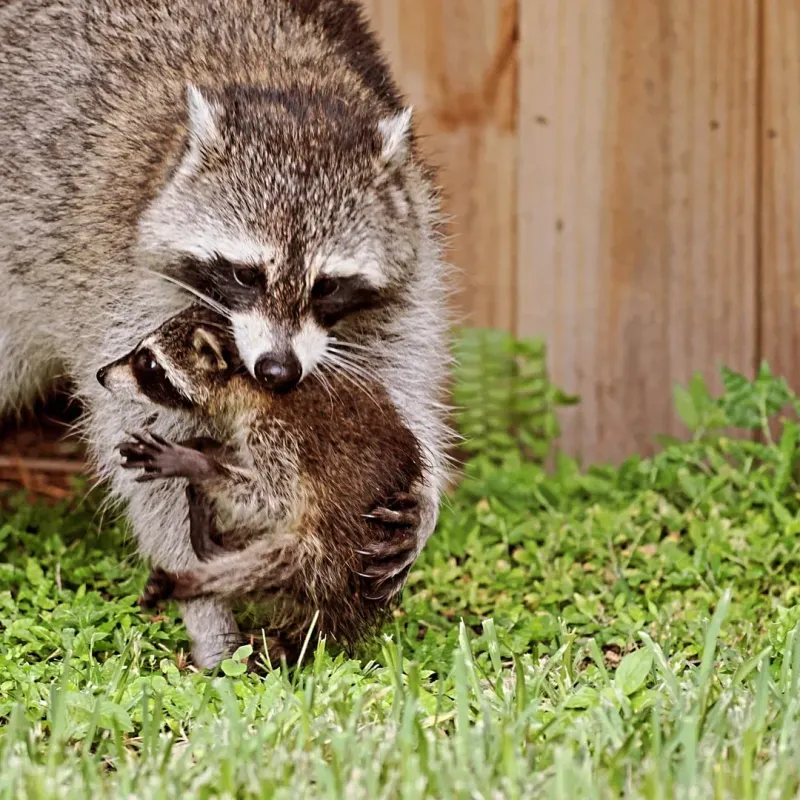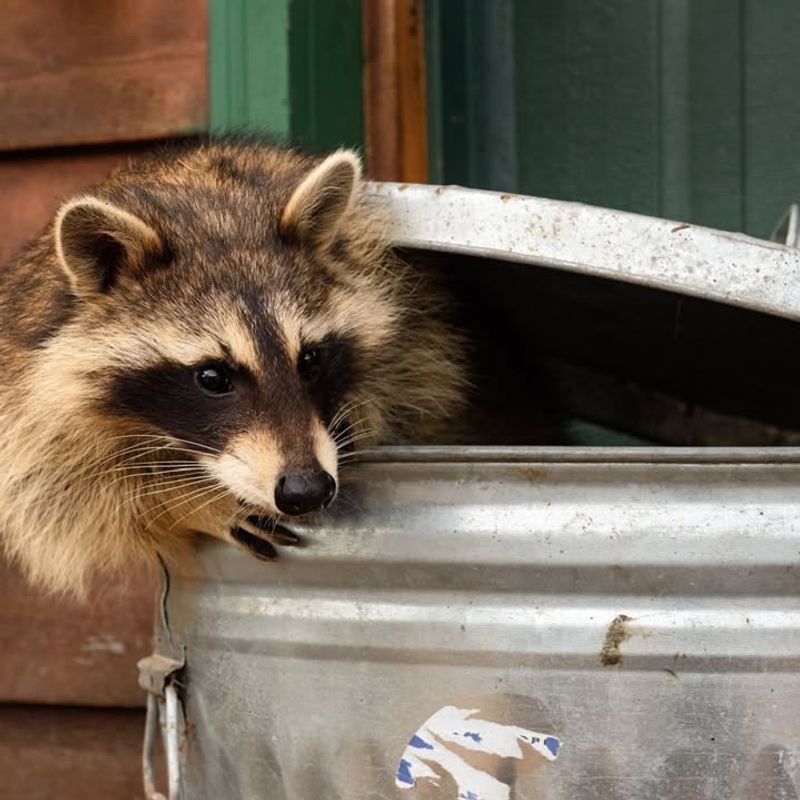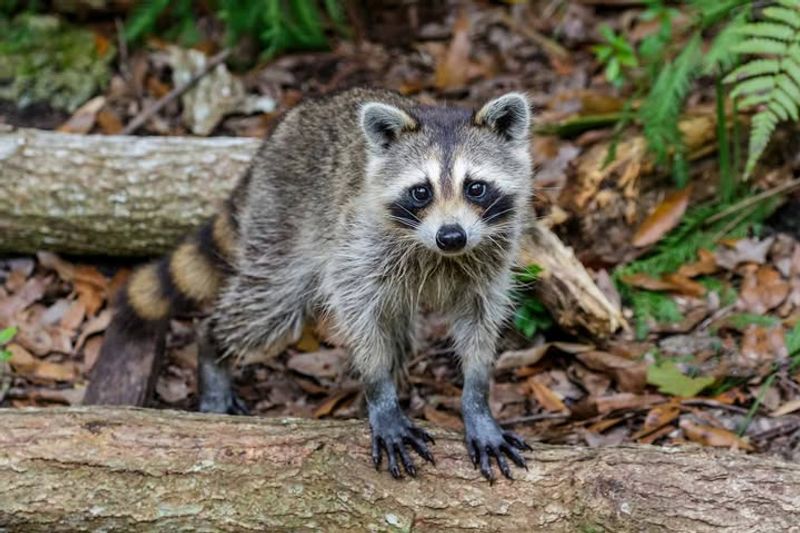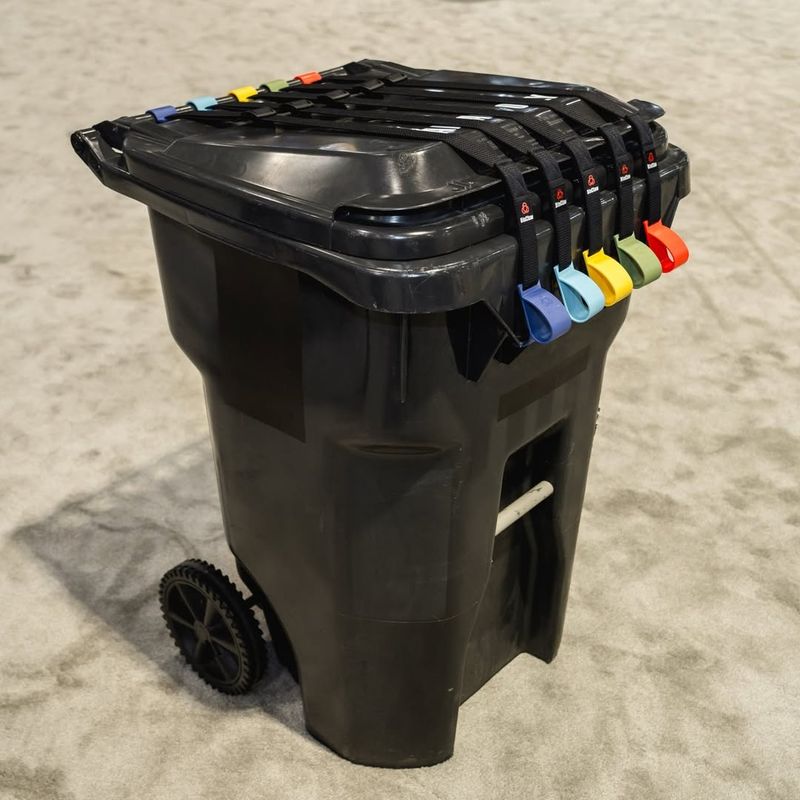Raccoons are clever critters that love exploring Virginia yards, especially when food and shelter are easy to find. Before you decide how to handle these masked visitors, you need to understand their behavior and habits.
Knowing the facts can help you make smart choices that keep both your property and the raccoons safe.
1. Raccoons Are Incredibly Smart Problem Solvers
With brains comparable to primates in certain tests, raccoons can remember solutions to problems for up to three years. Their nimble fingers work almost like human hands, allowing them to open latches, unscrew lids, and even turn doorknobs.
Virginia homeowners often underestimate just how clever these animals are when securing trash cans or garden sheds. A simple lock might not be enough to keep a determined raccoon out of your garbage.
2. Peak Activity Happens After Dark
Most raccoon action takes place between dusk and dawn when they feel safest exploring your Virginia property. During daylight hours, they typically sleep in dens located in trees, attics, or crawl spaces.
If you spot a raccoon wandering around during the day, it could signal illness, especially rabies, which affects their normal behavior patterns. Healthy raccoons almost always stick to their nighttime schedule for hunting and scavenging food.
3. Food Sources Draw Them To Your Property
Garbage cans, pet food bowls, bird feeders, and Virginia vegetable gardens act like magnets for hungry raccoons searching for easy meals. Once they discover a reliable food source, they’ll return night after night to the same spot.
Removing these temptations is the most effective way to discourage raccoons from treating your yard like their personal buffet. Secure trash lids with bungee cords and bring pet food inside before sunset.
4. Mother Raccoons Seek Safe Nesting Spots
Between March and May, female raccoons look for warm, protected places to raise their babies, called kits. Attics, chimneys, and sheds provide perfect shelter from predators and harsh weather conditions.
A mother raccoon can be extremely defensive when protecting her young, making removal much trickier during breeding season. Listen for chattering sounds or scratching noises overhead, which often indicate a family has moved into your Virginia home.
5. Rabies Risk Is Real But Manageable
Virginia ranks among states with documented raccoon rabies cases, making caution around these animals absolutely necessary. Rabies spreads through bites or scratches, and infected raccoons may act unusually aggressive or disoriented.
Never attempt to touch, corner, or feed wild raccoons, even if they seem friendly or approachable. If you encounter a raccoon acting strangely, contact animal control immediately rather than handling the situation yourself for your safety.
6. Legal Protections Limit Your Options
Virginia law regulates how homeowners can trap, relocate, or remove raccoons from their property throughout the year. Certain methods require special permits, and relocating trapped animals without permission is actually illegal in many cases.
Hiring a licensed wildlife control professional ensures you follow state regulations while addressing your raccoon problem effectively. DIY solutions might seem cheaper initially but can lead to fines or legal trouble if done incorrectly.
7. Property Damage Can Be Extensive
Sharp claws and strong paws allow raccoons to tear through Virginia roof shingles, rip apart soffits, and destroy insulation when seeking shelter. Their waste accumulates quickly, creating unsanitary conditions that damage ceilings and promote mold growth.
Garden destruction is another common complaint, as raccoons dig up lawns searching for grubs and raid vegetable patches for fresh produce. Repairing raccoon damage often costs hundreds or thousands of dollars depending on severity.
8. Prevention Beats Removal Every Time
Stopping raccoons before they settle in saves money, stress, and hassle compared to eviction after they’ve established territory. Simple steps like trimming tree branches away from your roof and sealing entry points work wonders.
Motion-activated lights and sprinklers can startle raccoons away from your Virginia property without causing harm to the animals. Regular property inspections help you spot vulnerabilities before raccoons discover them, keeping your home raccoon-free year-round.

